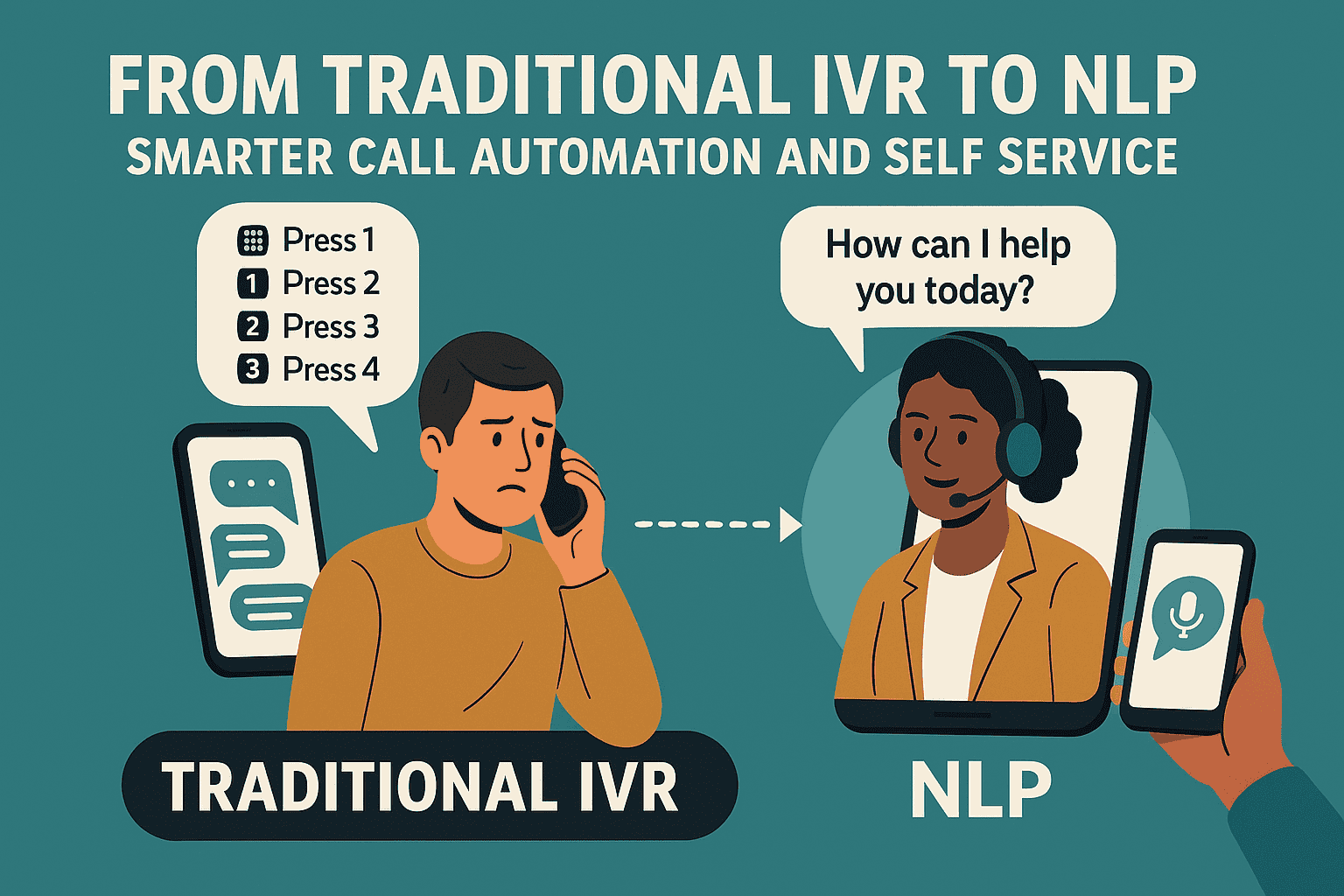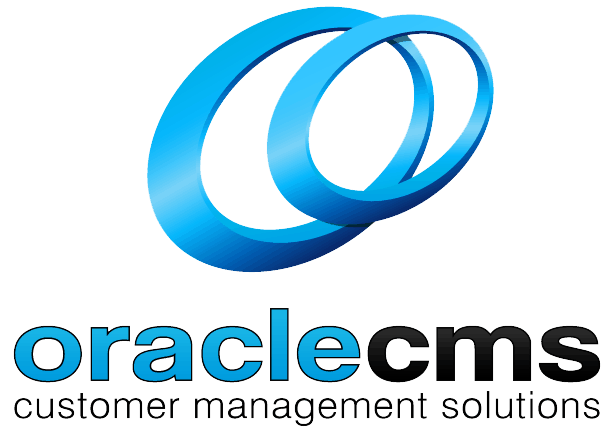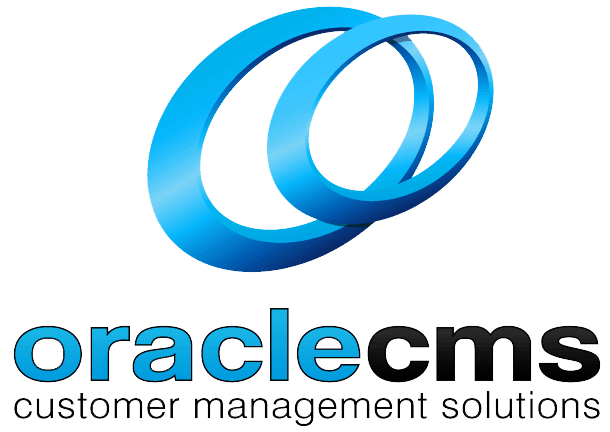
From Traditional IVR to NLP for Smarter Call Automation and Self-Service
Customers calling a business don’t want to wait through a list of irrelevant menu options. They want to speak, be understood, and get the right help fast. Traditional IVR (Interactive Voice Response) systems often create friction instead of removing it, forcing callers to navigate confusing options, repeat themselves, or hang up in frustration. As expectations for speed and clarity grow, especially among mobile-first users, businesses are rethinking their call handling strategies.
That’s where Natural Language Processing (NLP) comes in. By allowing callers to speak in plain language instead of pressing numbers, a natural language IVR system represents a major improvement in how businesses interact with customers and OracleCMS is helping lead that shift.
Why Traditional IVR Systems Often Fall Short
Legacy IVR systems were designed with limited input methods and static call flows. Callers had to listen to lengthy menu trees and respond by pressing a number that hopefully matched their need. But those systems weren’t built for flexibility or real conversation. They often misroute calls, increase handling time, and create frustration especially when the menu doesn’t align with the caller’s intent.
Many customers abandon calls altogether or immediately request a live agent, defeating the purpose of the automation. For businesses, this means lost time, higher operational costs, and missed opportunities to improve customer satisfaction. In contrast, modern systems can interpret intent and respond intelligently, removing these roadblocks entirely.
What Is NLP and How Does It Fit Into IVR?
Natural Language Processing is the technology that enables machines to understand and interpret human speech. In the context of IVR, it allows callers to use everyday language to express their needs whether that’s “I need to reschedule my appointment” or “I’d like to speak to someone about billing.” Instead of matching exact keywords, NLP systems detect the caller’s intent and route the enquiry accordingly.
This removes the need for complex menu navigation and opens the door to more human-like interactions. Unlike simple voice recognition systems of the past, NLP can handle variations in phrasing, accent, and tone, creating a more natural user experience.
The Role of AI in Supporting NLP-Based IVR
NLP wouldn’t be possible without artificial intelligence. AI models are trained on large volumes of real-world speech data, allowing them to continuously improve in recognising patterns and understanding context. This is how a system can differentiate between someone saying “cancel” to end a booking versus someone saying “cancel” when confused about an option.
Machine learning algorithms help refine these distinctions, ensuring the system adapts over time. As more calls come in, the AI gets better at understanding the unique ways people ask for help. For OracleCMS, this means delivering systems that aren’t static they evolve with your business and your customers.
Key Benefits of NLP-Enabled IVR for Businesses
Replacing rigid menu structures with NLP can dramatically improve the customer journey. Callers get faster responses because they aren’t forced to wait through options that don’t apply to them. Enquiries are routed more accurately, reducing the number of call transfers and callbacks. The experience is especially helpful for non-native speakers, people with accessibility needs, and those using mobile devices on the go.
On the business side, NLP IVR reduces the load on live agents by resolving routine queries automatically. This leads to shorter queues, better use of internal resources, and a more responsive service model. Over time, it becomes a self-improving system that delivers better results with less effort.
How OracleCMS Implements NLP-Driven IVR
Every implementation starts with understanding the business’s needs and its customers’ behaviours. OracleCMS analyses call volumes, common enquiry types, and existing pain points before designing a tailored IVR experience. Using this data, OracleCMS trains the NLP model to recognise relevant phrases and build natural conversation flows.
As the system goes live, it’s monitored closely to ensure accuracy and make continual refinements based on real interactions. Updates can be made without overhauling the entire structure, making the solution flexible and scalable. Whether for a local council, a medical provider, or a large enterprise, OracleCMS ensures the IVR fits the business not the other way around.
Integration with Omnichannel Systems
An NLP-enabled IVR works best when it’s part of a broader service ecosystem. OracleCMS integrates these systems with customer databases, helpdesk platforms, and email or chat solutions. This means a caller’s previous interactions can be taken into account, and follow-ups can be logged or actioned in other channels automatically.
If a voice enquiry requires further support, it can trigger the creation of a case in a CRM or alert a live agent with full context. This seamless handover improves consistency across service touchpoints, which is essential for businesses committed to offering efficient, connected customer experiences.
Real-World Use Cases
Many organisations in Australia are already seeing the advantages of NLP IVR. A local council, for instance, might use it to automate bin collection enquiries, rate payments, or parking permit requests reducing call queues and freeing up staff for more complex queries. A private clinic could enable patients to confirm or cancel appointments using natural speech, avoiding long hold times.
These examples show that NLP IVR isn’t reserved for big tech firms. It’s a practical upgrade available to businesses of all sizes. As one fictionalised customer insight might suggest, “We saw our wait times drop by over 40% in the first month.”
Common Mistakes to Avoid When Transitioning to NLP IVR
Implementing NLP IVR without proper preparation can lead to mixed results. One common mistake is failing to train the system using local speech patterns or regional accents, which affects accuracy. Another is skipping the setup of fallback paths if the system doesn’t understand a request, it needs to know when and how to pass the call to a human.
Some businesses also overestimate how quickly customers will adapt and don’t provide an alternative path like keypad fallback during early rollout stages. OracleCMS addresses all of these risks by conducting live pilot tests and providing continuous support post-deployment.
Signs You’re Ready to Upgrade Your IVR
If customers are consistently pressing “0” to escape your menu, it’s a sign that your IVR isn’t serving them. Rising call abandonment rates, long wait times, and frequent misrouted enquiries all point to the limitations of traditional systems. Another clear sign is feedback if people are telling you that your phone system is hard to use, it probably is.
Businesses that receive a high volume of repeat queries, such as billing questions or appointment confirmations, stand to benefit the most. NLP IVR doesn’t require a full overhaul of your systems it’s a modular upgrade that can scale with your needs.
Why OracleCMS Is a Trusted Partner
OracleCMS has years of experience building and maintaining automated contact solutions for businesses across Australia. The team understands that no two organisations are the same. That’s why every IVR solution is built around specific business goals, customer behaviour, and operational needs. Rather than offering a one-size-fits-all system, OracleCMS delivers tools that integrate with existing workflows and provide long-term value.
From design to launch to post-implementation support, the focus is on measurable outcomes: reduced call volumes, better routing accuracy, and improved satisfaction on both sides of the line.
Let Customers Speak Naturally and Be Understood
NLP IVR isn’t about replacing human agents it’s about using automation where it makes the most sense. By removing the barriers of rigid menus and enabling natural conversation, businesses can serve more customers, more efficiently.
OracleCMS helps organisations take that step with confidence, offering a smart, scalable approach to modernising customer communication. As service expectations rise, it’s no longer enough to have a basic call system. The way your phone line responds reflects your commitment to clarity, convenience, and care.
FAQ
Q1: What is the difference between traditional IVR and NLP based IVR?
A1: Traditional IVR uses menu trees where callers press numbers to choose options. NLP-based IVR lets callers speak in natural language, improving speed and reducing friction.
Q2: How accurate is NLP in understanding caller intent?
A2: Accuracy is high, especially when the system is trained on real call data. OracleCMS tunes each deployment to local speech patterns and updates it based on live use.
Q3: Can NLP IVR integrate with existing systems?
A3: Yes. It integrates with CRMs, helpdesk platforms, and other digital systems so customer data flows between channels without loss of context.
Q4: Is this only suitable for large companies?
A4: No. Businesses of all sizes benefit from NLP IVR, particularly those with high call volumes or repetitive enquiries.
Q5: How long does it take to set up?
A5: Basic systems can be live within weeks, depending on complexity. OracleCMS handles setup, testing, and tuning as part of the process.
Q6: What happens if the system doesn’t understand the caller?
A6: A fallback mechanism hands over to a live agent without requiring the caller to start again, maintaining a smooth experience.
Q7: Will customers really use speech over pressing buttons?
A7: Yes. Research and usage trends show that most people prefer speaking when it leads to faster results, especially on mobile devices.



